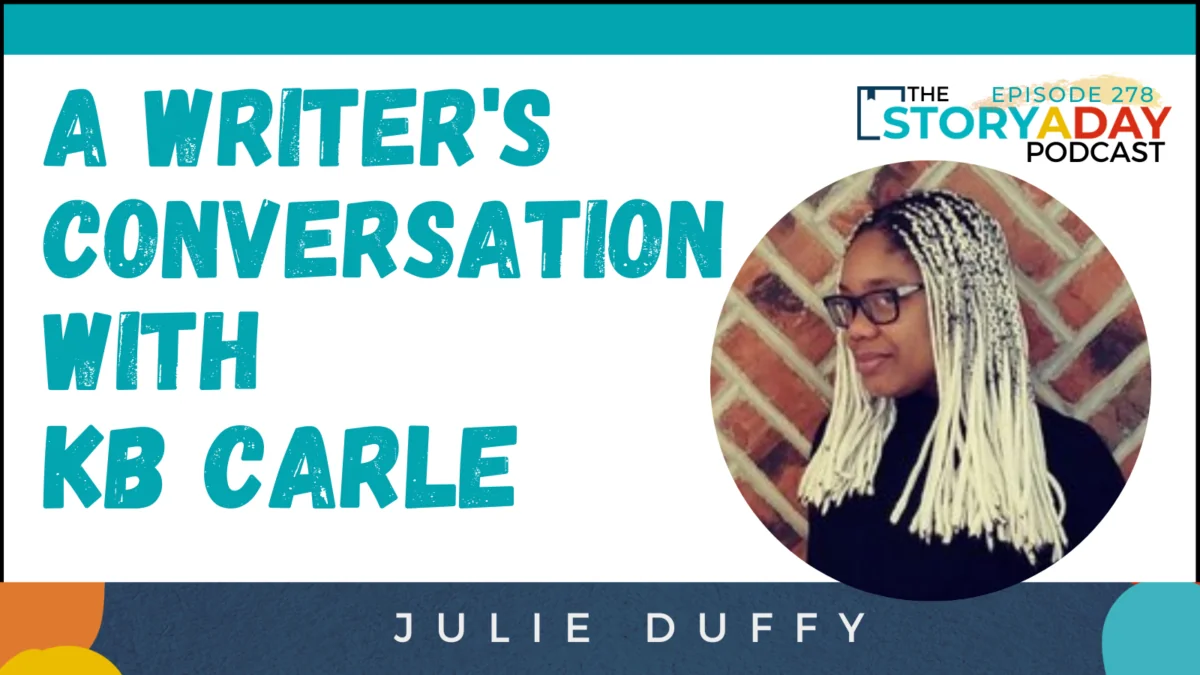It’s really nice to know that there is still an outlet or a form of writing that I can do and still keep a full-time job while doing it.
And it didn’t really bend my schedule too much. So that’s how I really started exploring Flash
-K. B. Carle
In the second part of my conversation with author KB Carle (listen to Part 1 here) we talk about what attracted her to Flash Fiction; the challenges of moving from short to novel-length fiction; how to get unstuck ; and how being a writer includes building your community
There’s a ton of practical tips (and resources) to keep you going in this week’s episode. Enjoy!
Need the transcript? Click here
RESOURCES
In Exchange for the Final Pudding Cup, We Offer Our Inner Thoughts, from The Offing (includes a Venn diagram)
Hello, My Name Is Marley in CRAFT Literary Magazine (this one has a word search!)
Vagabond Mannequin in Jellyfish Review (crossword clues as story!)
How We Survived , in Lost Balloon
Grace Q. Song‘s website
I Keep My Exoskeleton To Myself by M. Crane
Keep writing,
Julie
About KB Carle
K.B. Carle lives and writes outside of Philadelphia, Pennsylvania. Her flash has been published in a variety of places including Lost Balloon, Five South Lit., The Rumpus, JMWW, and elsewhere. K.B.’s stories have been nominated for The Pushcart Prize, and her story, “Soba,” was included in the 2020 Best of the Net anthology. Her story, “A Lethal Woman,” will be included in the 2022 Best Small Fictions anthology. She can be found online at kbcarle.com or on Twitter @kbcarle.
Want more?
Weekly writing prompts and lessons in your inbox, every Wednesday with the StoryAWeek Newsletter



